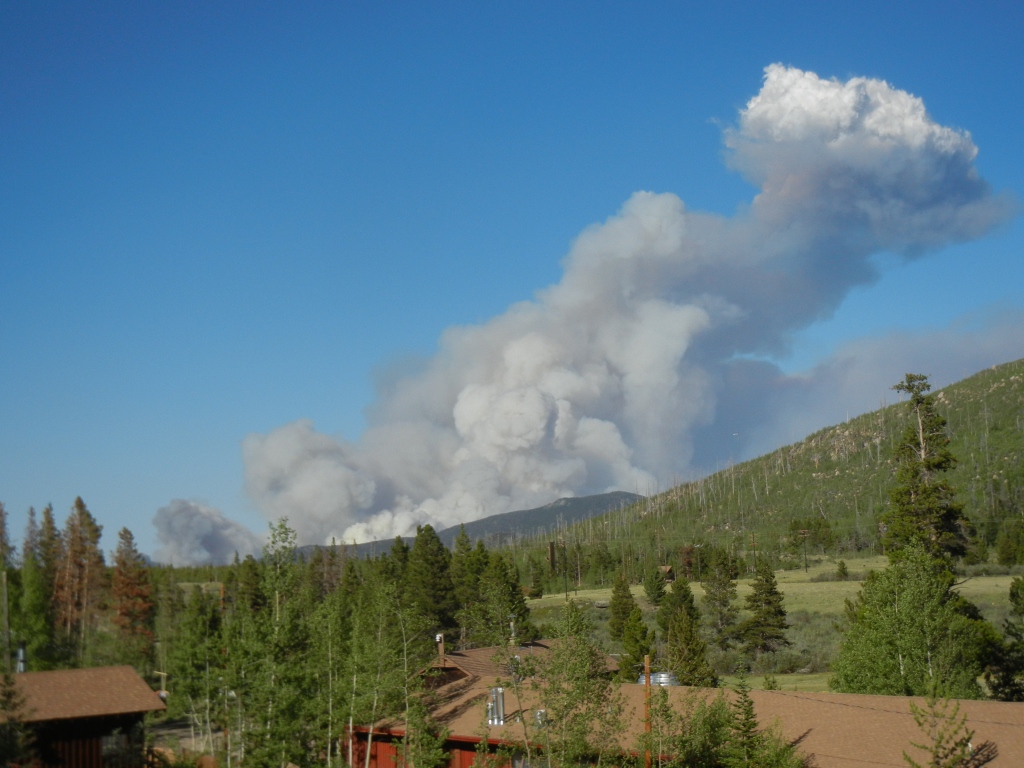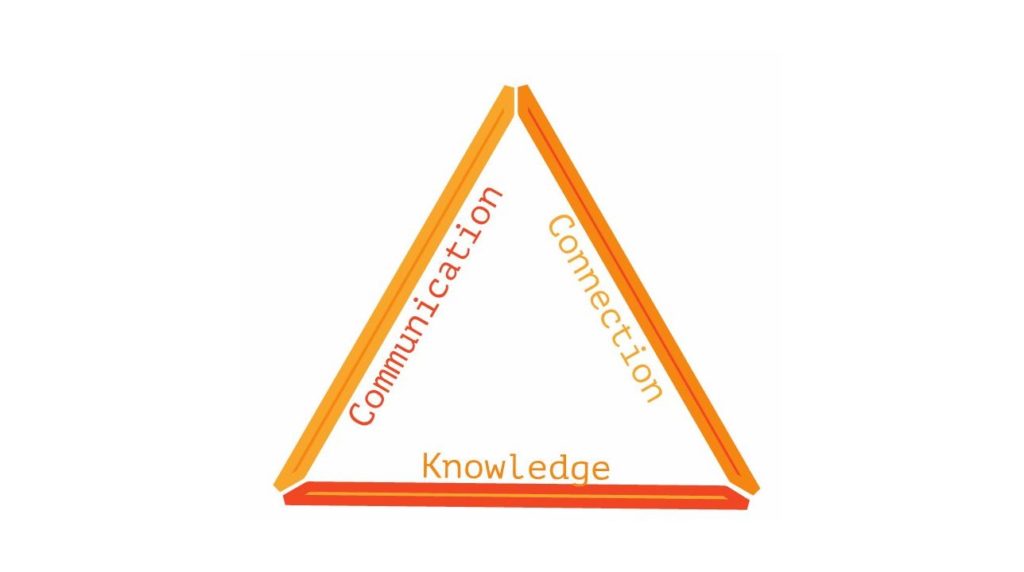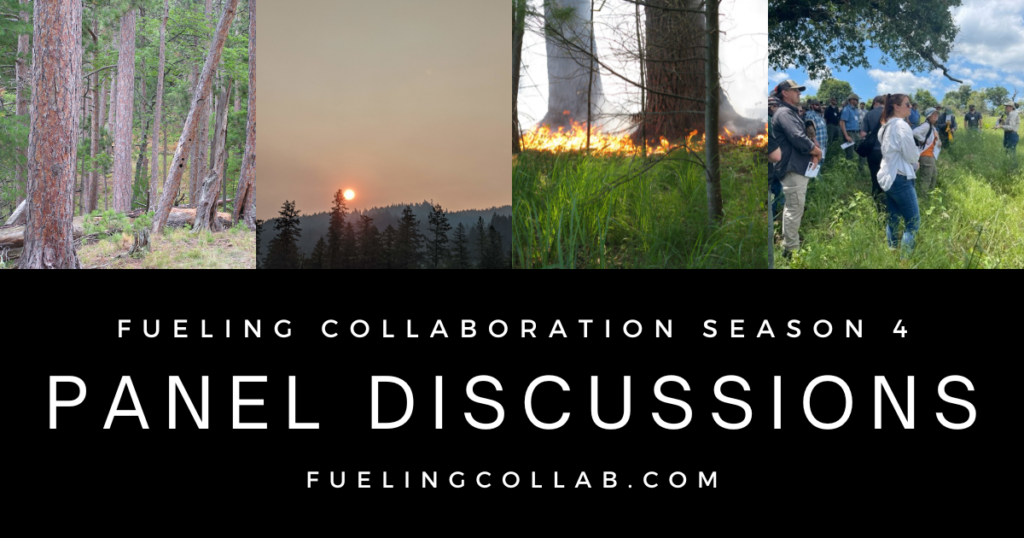Fueling Collaboration panel discussion series recap
Written by Amanda Mahaffey
February marked the close of Season 4 of the Fueling Collaboration panel discussion series. This interactive, facilitated series addresses hot topics in wildland fire science and management. Imagine you’re at a conference, and it’s late in the day, and you happen to notice some experts on a topic you’re interested in sitting down together for refreshments and engaging conversation. This is the atmosphere created in the Fueling Collaboration series. Facilitated conversations with fire scientists and land managers explore wide-ranging avenues of current research, burning questions, and opportunities to fuel collaborations.


The Fueling Collaboration series was created in 2020 as a joint effort of the fire science exchanges in the Northeast and Midwest and the USDA Forest Service Northern Research Station. A year later, the successful series was expanded to include the Southern Research Station and Southern Fire Exchange. Leaders from each of these networks select topics, invite speakers, facilitate the virtual panels, and communicate with participants to ensure their questions are being addressed. Since the series launch, thousands of participants have joined in these engaging events, often filling up the chat with resources and related conversation threads.

Recordings and resources from Season 4 are now available online, along with recordings from the past three seasons. This season kicked off with a fabulous panel discussion on Fire History as a Bridge Between Ecological Knowledge Systems, featuring Indigenous firekeepers and western science collaborators. The excitement built with The Future is Smoky panel, facilitated by a retired wildfire incident meteorologist who led the panel through a series of topics tied to the past unprecedented wildfire season and the outlook for the years ahead. The panel discussion on the Phenology of Fire: Listening to the Plants and Animals examined the seasonality of fire and fire effects on fire-dependent flora and fauna. The season rounded out with a diverse conversation on Successfully Bridging the Gap: Eastern US Models of Fire Science and Management Collaboration, which tied back to the community-building elements of successful fire science collaboration.
